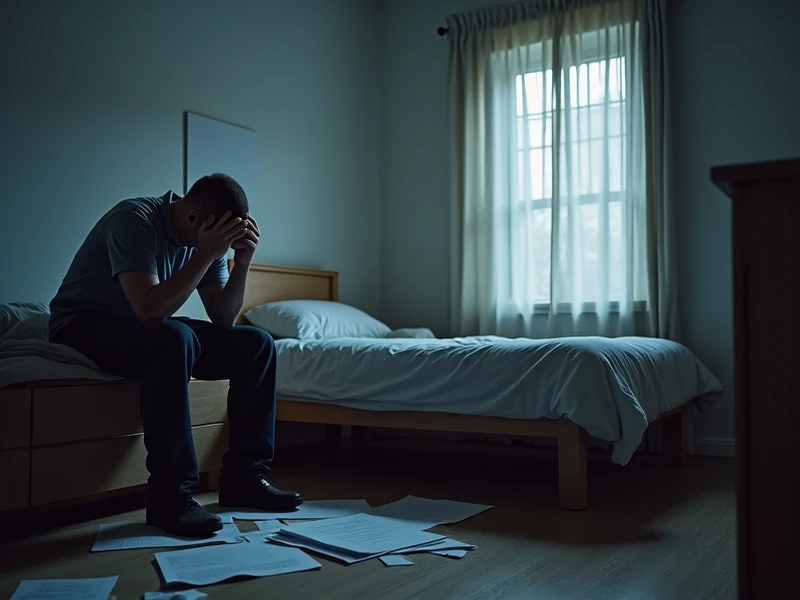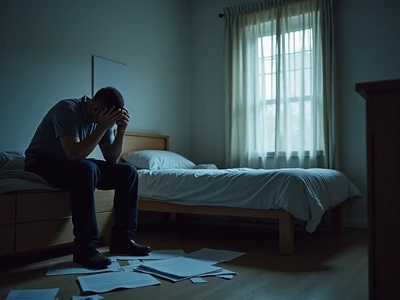Millions of veterans return home with visible and invisible wounds from their service. While physical injuries are often apparent, the emotional toll, such as depression, remains hidden yet deeply impactful. For veterans seeking fair compensation and support through the VA depression rating system, understanding the process can be life-changing. This guide by BrainTalking delves into the complexities of the VA rating for depression, eligibility criteria, and how to secure the benefits you deserve.
What is the VA Depression Rating and Why is it Important?
The U.S. Department of Veterans Affairs (VA) uses a disability rating system to evaluate how service-connected conditions, including depression, affect a veteran’s ability to function.
- Explanation of the VA Disability Rating System: The VA assigns ratings on a scale from 0% to 100% in increments of 10, reflecting the severity of a veteran’s condition. A VA rating for depression not only determines monthly disability compensation but can also unlock access to essential healthcare and support services.
- Significance of a Fair Rating: A fair VA depression rating ensures veterans receive adequate financial assistance and treatment. Depression can significantly impact a veteran’s daily life, hindering their personal relationships, job performance, and overall well-being.
- Impact on Veterans’ Lives: Many veterans face persistent challenges such as fatigue, loss of interest, or difficulty concentrating—all of which affect their ability to live fulfilling lives. The VA system acknowledges these struggles, but navigating its complexities requires proper preparation and knowledge.
Eligibility Criteria for VA Depression Rating
Applying for a VA rating depression requires meeting specific eligibility criteria, including proving a direct connection between military service and the condition.
- Service Connection Requirement: Veterans must show their depression is service-connected. This means providing evidence, such as medical records or deployment history, that establishes a clear link between their military service and the onset of depression.
- Evidence to Support a Claim: Key records include:
– Medical treatment records documenting depression symptoms and diagnosis.
– “”Buddy statements”” from fellow service members or loved ones detailing observed symptoms. – Military service documents that highlight traumatic events or stressful conditions linked to depression.
- Understanding VA’s Diagnostic Code (DC): Depression falls under the VA’s Diagnostic Code 9434 for mental disorders. This code outlines how symptoms are rated, making it crucial for veterans to detail how depression impacts their daily lives when filing a claim.
Navigating the VA Claims Process for Depression

The VA claims process can feel daunting, but with thorough planning, it’s possible to secure the benefits you deserve.
How to File a VA Claim for Depression
Filing a VA disability claim for depression is the first step to getting an official rating.
- Step-by-Step Process:
1. Gather Documentation: Obtain detailed medical records, diagnosis reports, and supporting evidence of how depression affects your life.
2. File VA Form 21-526EZ: This streamlined application form is used to start most VA claims. 3. Submit the Claim: Claims can be filed online at VA.gov, by mail, or through a veterans’ service officer (VSO).
- Required Forms and Documentation: Include medical diagnoses, records of ongoing treatment, buddy statements, and any supporting documentation that links your depression to military service.
- Importance of Being Thorough: Incomplete or vague claims can delay your case. Be specific when describing depressive symptoms, their frequency, and how they limit your daily activities or ability to work.
The VA Examination and C&P Exam for Depression
Once a claim is submitted, the VA conducts a Compensation and Pension (C&P) exam to assess the severity of your depression.
- What to Expect During the C&P Exam: A VA-affiliated examiner will ask detailed questions about depressive symptoms, daily routines, and the disorder’s impact on your personal and professional life.
- Preparation Tips:
– Be prepared to discuss symptoms such as insomnia, feelings of hopelessness, or difficulty concentrating.
– Avoid downplaying your struggles; the examiner needs an accurate picture to determine your rating. – Bring relevant documentation or evidence to the exam.

- Role of the Examiner: The examiner’s findings are crucial in determining your VA rating for depression. They measure how depression impacts your ability to work, socialize, and perform daily activities.
Factors Influencing Your VA Depression Rating
The VA considers several factors when assigning a depression rating.
- Severity of Symptoms: The degree to which depression disrupts basic functioning, such as personal relationships or occupational performance, plays a significant role.
- Frequency and Duration: Chronic and severe depressive episodes typically lead to higher disability ratings.
- Co-Existing Conditions: Conditions like PTSD or anxiety disorder can influence the overall disability rating and may lead to a combined score if applicable.

Maximizing Your VA Disability Benefits for Depression
Understanding the VA’s rating criteria can help veterans and their families advocate for the highest possible compensation.
Understanding the VA Rating Scale for Depression
The VA uses a General Rating Formula for Mental Disorders to assign percentages based on symptom severity.
- VA Depression Rating Scale Explained:
– 0% Rating: The condition is formally diagnosed but does not impair daily functionality.
– 10% Rating: Symptoms result in mild or occasional impairment. – 30% Rating: Symptoms disrupt productivity and social functioning intermittently. – 50% Rating: Symptoms lead to reduced reliability and productivity. – 70% Rating: Severe symptoms severely impair relationships and workplace performance. – 100% Rating: Severe impairment in all areas, including self-care and social connections.
- Functional Impairments at Each Level: The VA examines symptoms like suicidal ideation, difficulty maintaining work relationships, or inability to handle stress effectively.
What to Do If You Disagree with Your VA Depression Rating
Receiving a low or inaccurate rating can feel disheartening, but options exist to appeal.
- Appealing a Decision:
– Notice of Disagreement (NOD): Initiate an appeal when you disagree with the VA’s decision.
– Higher-Level Review: Request a senior reviewer to evaluate your case. – Supplemental Claim: Submit new and relevant evidence to support a higher rating.
- Seeking Help from Experts: Veterans Service Organizations (VSOs) and VA-accredited attorneys can assist with appeals, offering expert guidance.
- Strengthening Your Appeal: Consider adding more medical evidence, emphasizing missed symptoms, or getting a second opinion from an independent mental health professional.
Resources and Support for Veterans with Depression
Access to mental health services and peer support is vital for veterans managing depression.
- VA Mental Health Services:
– Individual counseling and group therapy.
– Medication management and crisis intervention. – Access to specialists through VA healthcare facilities.
- MakeTheConnection.net: This website provides relatable stories, resources, and peer connections to help veterans recognize that they are not alone in their struggles.
- Non-VA Resources:
– National Suicide Prevention Lifeline: 988 (a lifeline for veterans in crisis).
– Local support groups for mental health or veteran-specific challenges.
Final Thoughts
Navigating the VA rating for depression is a deeply personal yet critical process for veterans seeking care and fair compensation. From filing claims to understanding rating scales, every step requires vigilance and preparation. At BrainTalking, we aim to empower veterans with knowledge and encourage them to utilize the resources available, such as VA mental health programs and peer support platforms like MakeTheConnection.net.
Remember, you are not alone, and there’s no shame in seeking help. If you or a loved one is navigating depression, take the first step toward improving your quality of life—your service and sacrifice deserve nothing less.





